MercoPress. South Atlantic News Agency
Argentina
-
Monday, November 28th 2022 - 21:49 UTC
Caps on fuel prices announced to curb Argentina's inflation

Argentina's Superminister of Economy, Industry and Agriculture Sergio Massa reached an agreement with oil companies whereby fuel joins the list of care-for prices. Hence, the price at pumps may not go up above a 4% monthly ceiling until March, it was announced in Buenos Aires.
-
Monday, November 28th 2022 - 10:59 UTC
Argentine producers want unreined dollars, not “traps”
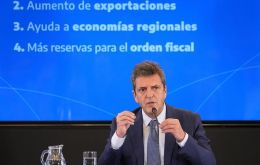
Argentine rural producers have voiced their rejection of Super Economy Minister Sergio Massa's proposal to create a reload version of the soybean dollar and insisted on the need to leave currency exchange free.
-
Monday, November 28th 2022 - 10:24 UTC
Loan to Argentina to strengthen marine resources sustainability and agricultural health
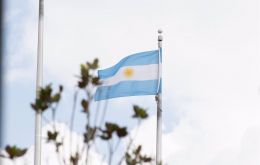
Argentina is receiving a US$ 125 million loan from the Inter-American Development Bank to help Argentina strengthen its agricultural health services and enhance the sustainability of its marine resources.
-
Monday, November 28th 2022 - 10:08 UTC
World Cup: Argentina still in contention

After Mexican fans staged bravados against those of Argentina in Qatar with chants regarding the Malvinas/Falklands issue, the South Americans Saturday stood up to their historical superiority and scored a 2-0 victory that kept them in contention for a berth in the next round.
-
Saturday, November 26th 2022 - 10:41 UTC
Women take to the streets in a new November 25 against sexual and gender-based violence
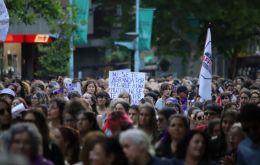
Dozens of cities in Latin America and around the world were the scene where thousands of women marched on a new International Day for the Elimination of Violence against Women, better known as 25N.
-
Saturday, November 26th 2022 - 10:02 UTC
Argentina's Lower House passes zero-alcohol for drivers bill
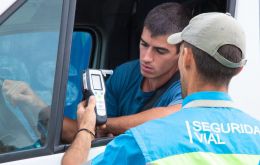
Argentina's Lower House has this week passed a zero-alcohol-while-driving bill which still needs to go through the Senate to become a fully enforceable norm.
-
Saturday, November 26th 2022 - 09:48 UTC
Unions halt import of Argentine-brewed beer into Uruguay
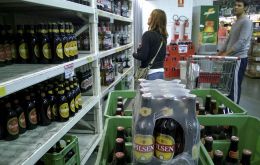
Unions have saved Uruguayan brewery workers from calamity after their actions prevailed in stopping FNC from importing domestic brands from Argentina, where production costs around half as much due to the currency exchange scenario.
-
Friday, November 25th 2022 - 08:43 UTC
Mexican fans pull Falklands card to mock Argentina supporters in Qatar

Argentine and Mexican fans did not get along very well in Qatar, particularly after provocative chants underlining that ”in the Malvinas (Falklands) they speak English.”
-
Friday, November 25th 2022 - 08:19 UTC
Argentina: Milei and Bullrich share common values ahead of 2023 elections

Argentine Liberal Deputy Javier Milei admitted he would gladly face PRO Chairwoman (and Presidential hopeful) Patricia Bullrich in next year's primary elections and if he loses he would agree to serve as Minister of Economy under her.
-
Friday, November 25th 2022 - 08:11 UTC
Energy agreement between Argentina and Brazil extended

Argentina and Brazil agreed to extend the current Memorandum of Energy Exchange until 2025, it was reported Thursday. The document, which provides for the exchange of electric power and natural gas between both countries, was about to expire. As per its new wording, the agreement is to be automatically renewed every four years.
